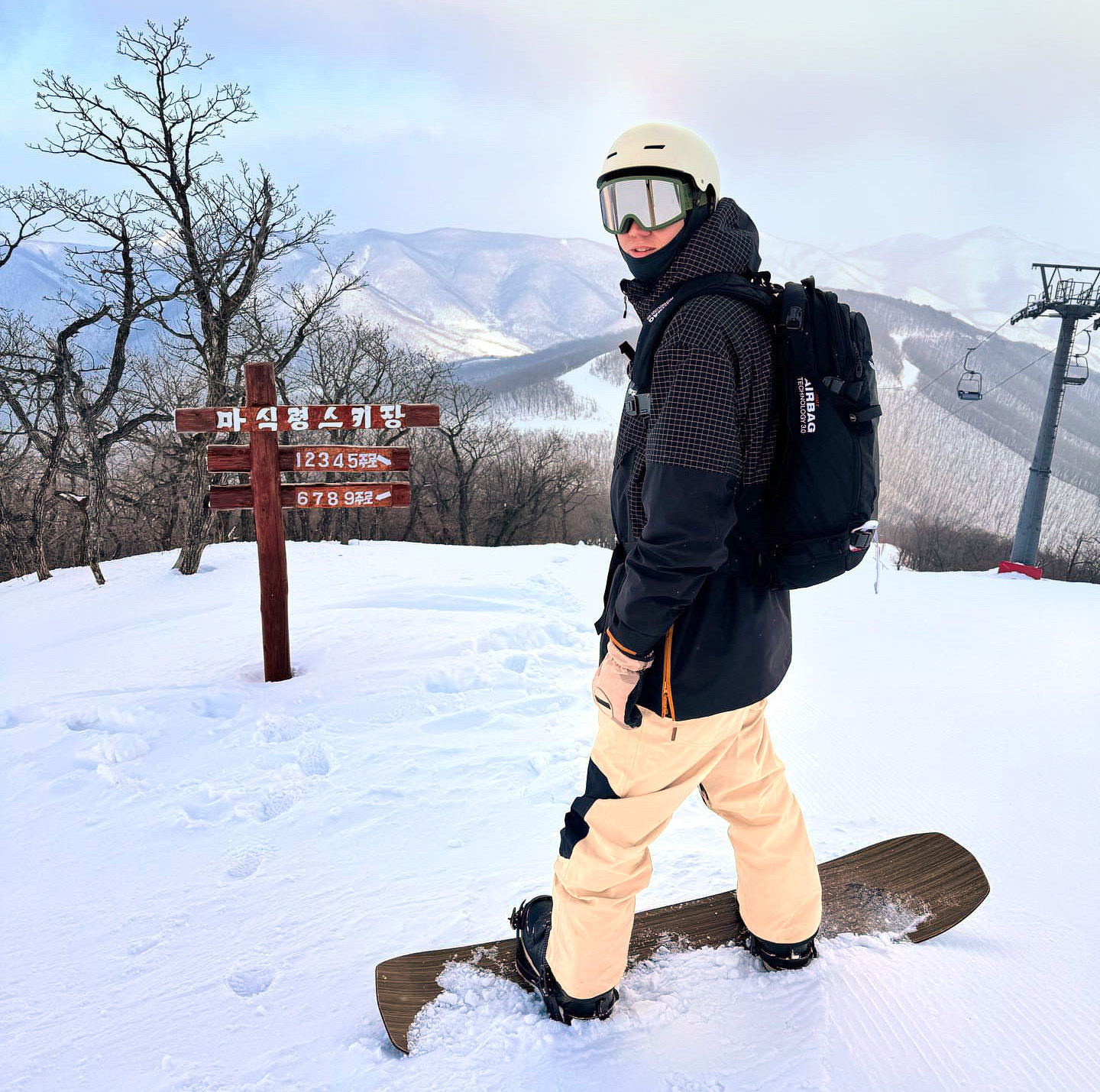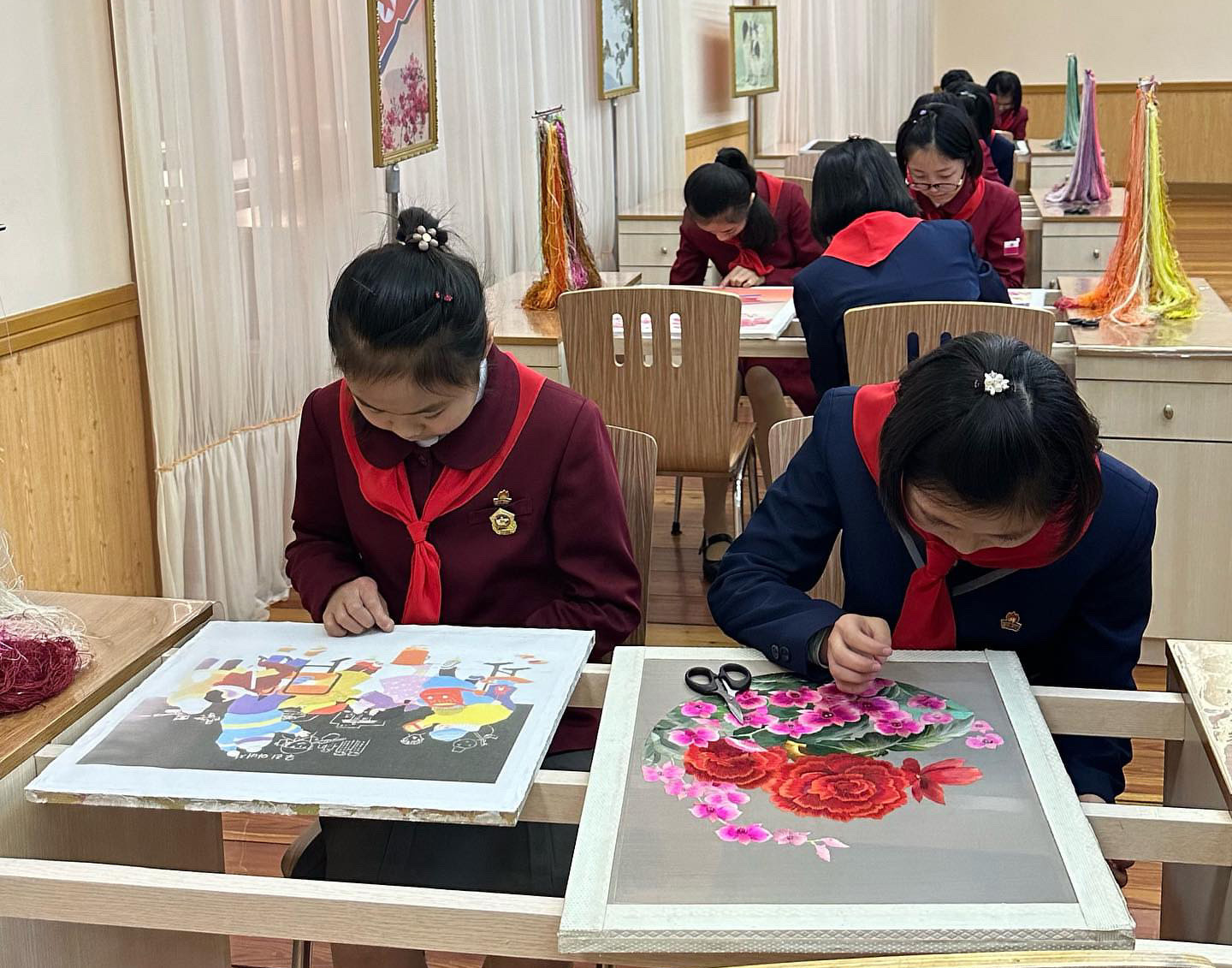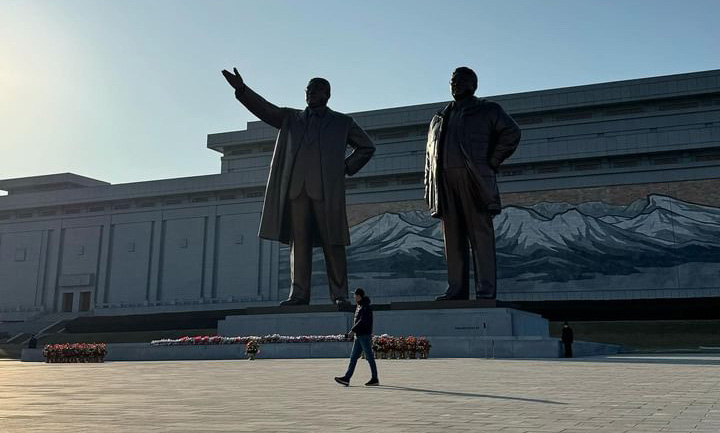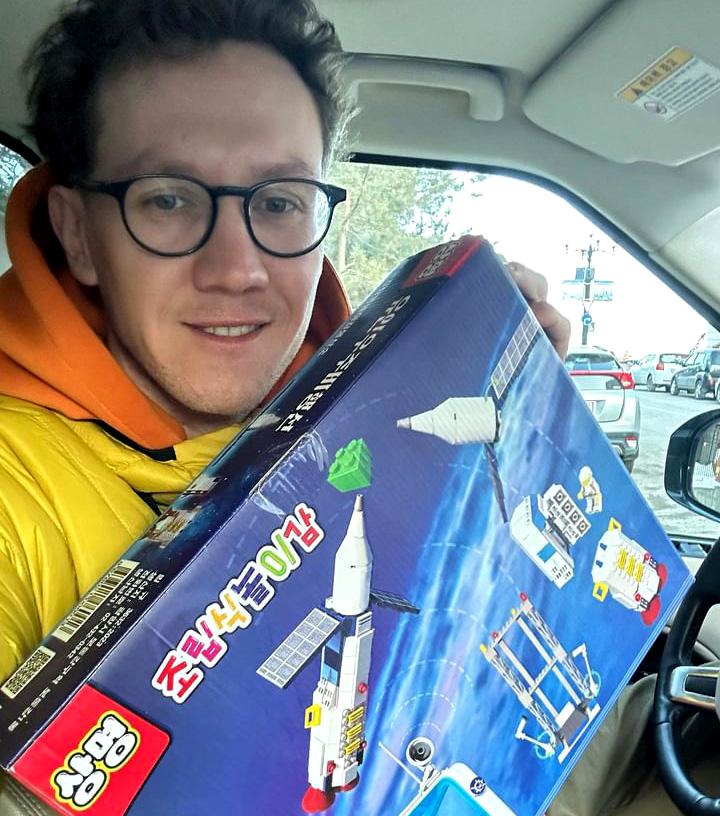Ilya Voskresensky is a travel blogger from St. Petersburg, Russia, who last week joined the first foreign tour group to visit North Korea in four years.
In January 2020, North Korea closed its border with Russia and China, and suspended all trade, fearful that the coronavirus would wreak havoc over the country.
Tourism and the foreign cash generated by the industry came to a screeching halt.
The cash-strapped North Korean government has been itching to restart tourism and actively recruited the first foreign tour group that would visit the country since before the pandemic.
The 97 Russians arrived on Feb. 9 and spent four days and three nights in the capital Pyongyang and at the Masikryong ski-resort in the eastern province of Kangwon.
Following the visit, RFA Korean’s Jamin Anderson interviewed Voskresensky, who said that the North Korean authorities closely watched him and tried to limit his freedom to film from the moment he boarded the Pyongyang-bound Air Koryo plane in the Russian Far Eastern city of Vladivostok.
The interview has been edited for length and clarity.
RFA: How did you decide to take this trip? Were there any concerns about the dangers involved? Who did you travel with?
Voskresensky: I decided to go on a trip as soon as I heard that North Korea was opening and there would be a tour for Russian citizens there, and I like making films about my travels for my YouTube channel.
So I realized that this was an ideal opportunity to shoot something interesting and unique, something that I had never seen or felt before in my life. I wanted to see this kind of closed country, and to have a look at how that isolation and [North Korea’s] conservative culture affects tourism, the people, and the country in general.
Of course, I had concerns because I read a lot of stories, watched films about the DPRK and understood that many different things could happen to me there. Furthermore, they really don’t like those who’re constantly filming, and I was going there just to film.
But we did it anyway. There were still concerns. I went there with a friend of mine. He’s my cameraman, and the two of us were there together.

RFA: Did you encounter any unique experiences or any kind of cultural shock during your trip?
Voskresensky: The whole trip was a complete shock and surprise. The fact that in Pyongyang, a large city where 3 million people live, there are very few people on the streets and there are practically no cars at peak hours – not at 17:30 in the evening nor at 7:30 in the morning. You go through the streets, and they are empty and it’s shocking.
It’s also shocking how the cult of personality has simply surpassed all levels. When you open a publication, like the flight magazine on the airplane, the first 13 pages had only the face of one person [Kim Jong Un] and this is also shocking.
I didn’t see anything culturally unusual, but I soon saw the oddities of the regime, the way it changes the country. The closedness of this country, which absolutely preserves its ideology. It was like being teleported to the past.
Sometimes you look at pictures and there are people driving past or some kind of construction site and you have the feeling that this is all AI-generated around propaganda slogans, posters, and portraits of leaders, and it is simply astounding.

RFA: What freedoms and restrictions did you experience during the trip? When they imposed restrictions, what reasons were given?
Voskresensky: We encountered restrictions literally immediately on the plane. I took my camera to film how I entered the plane and I was immediately told off.
When we took our seats a man was there sitting with us. He was just sitting doing something on his phone, taking pictures of the porthole.
We hadn’t even left Russia yet. A member of the cabin crew came up, it was a North Korean airline, so the flight attendant just came, took the man’s phone and started looking through his photos.
He looked and deleted what he didn’t like. This was the first impression we got, and we hadn’t even left the country. We were still in Russia, but sitting in a DPRK airplane.
[Once we were in North Korea] we were banned from filming construction sites as well as shabby-looking buildings. [Our guide] said that these houses are being demolished and there would be new houses, but it was obvious that there were people still living in them.
They only allowed us to shoot picturesque, beautiful scenes. For example, at the ski resort where we were, there were no restrictions on filming at all, and we filmed absolutely everything.
We were also banned from filming military sites, but that’s something I understand, and I didn’t even ask why it’s not allowed.
There was a ban on walking around the city on your own, meaning you couldn’t leave the hotel and go for a walk around the city. I asked why. I wanted to go for a walk, but I was told, ‘You don’t know the Korean language and you will have problems.’ You couldn’t film construction sites, because they supposedly look ugly, and they want to show their country as a beautiful place.
It was impossible to film, as I already said, building compounds where people live. But when they brought us to certain city squares, on the contrary, they happily wanted us to take photographs.
And as I said before, when we flew to the ski resort. There were no restrictions on filming at all. We photographed everything we wanted.

RFA: What were the North Koreans like? Were you able to talk with them? How did North Koreans see the Russian tourists?
Voskresensky: We did not have the opportunity to communicate with ordinary people in North Korea. We only communicated with our guides and had some little exchanges with the hotel staff such as the waitresses. And a hairdresser. I got my hair cut at the barbershop and that’s it.
Other people didn’t speak to us, and we didn’t have the opportunity, because we had to follow the tour program the whole time.
RFA: You must have seen many North Koreans during your trip. What, if anything, left an impression on you?
Voskresensky: What struck me the most was when we arrived in the different cities, you actually don’t see ordinary residents on the street so much, but sometimes you do see people and, astonishingly, they all looked the same.
I don’t mean like ‘all Russians look alike or all Asians look alike,’ but what I mean is the clothes – they all wear the same color. Everyone’s clothes are in dark colors, they walk or they ride bicycles or electric bikes made in China, and they wear some kind of jackets but they all look the same, it’s just amazing.
RFA: Which places left the biggest impression?
Voskresensky: I was not at all impressed by the square where we were brought, where there were statues of leaders or some kind of monuments. This kind of thing didn’t impress me at all. I was most impressed when we all got on the buses at 7:00 in the morning and drove to the airport and I just peered into the streets. And this is what impressed me. It was such a gray morning, a little foggy, there were no cars at all on the roads and sometimes you could see only a few people passing by.
And this was exactly the feeling, as if you were in some kind of movie.

RFA: What about the food you ate on the tour? What kind of food was served?
Voskresensky: In general, I really love Korean cuisine. I was born in Uzbekistan and there were a large number of Koreans there during Soviet times. I tried and ate all kinds of Korean cuisine throughout my childhood.
But I didn’t see this Korean cuisine in North Korea. I get the feeling that due to many years of poverty they lost this culture because of their ‘communist equality.’ They also lost this culture itself, and it upset me, because I really love food, and we didn’t eat anything tasty there.
We had buffets, a buffet where everyone could just come and get food. And it was always something simple, some kind of spaghetti. Just chopped vegetables. Unfortunately I didn’t get to try anything particularly culturally traditional.

RFA: Did you buy any souvenirs?
Voskresensky: Yes, of course, I bought souvenirs. I bought gifts for my children. For my daughter I bought a little doll that holds a [North] Korean flag.
For my son I bought [plastic building blocks that closely resemble] Legos. North Korean Legos! And they were military themed.
There were only rocket tanks, and then there was another rocket that launched into space. I bought it, and also bought postcards with various propaganda posters, some against America, some about labor. I also bought a small brochure that talks about [North Korea’s] Juche ideology [of self-reliance].
RFA: Were there any differences between what you expected about North Korea and what you experienced when you actually visited?
Voskresensky: I’m probably one of those tourists who read too much about North Korea and in general my expectations coincided with what I wanted to see, what I saw, what I imagined before the trip, but I also saw that the country is still changing little by little.
For example, we were allowed to carry all the equipment that we took. I had a camera. I had an iPhone, I had a MacBook, and no one checked them. Not during the flight or when leaving.
And it struck me that no one checked what we were filming on cameras, and in fact, to some extent it pleased me. I hope that the country will change and I will still be able to return there, rent a car and travel around the country at will.
Translated by Jamin Anderson, Nga Pham, and Eugene Whong. Edited by Eugene Whong and Malcolm Foster.

